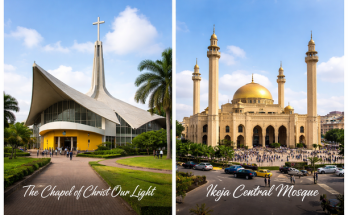Pope Francis, born Jorge Mario Bergoglio on December 17, 1936, in Buenos Aires, Argentina, ascended to the papacy on March 13, 2013.
As the 266th Pope of the Roman Catholic Church, he holds the distinction of being the first Jesuit pope, the first from the Americas, and the initial Southern Hemisphere pontiff.
Early life

Preceding his pontifical role, Bergoglio served as the Archbishop of Buenos Aires.
His Jesuit background, aligning with the Society of Jesus, significantly influenced his perspectives, emphasizing education, social justice, and contemplative spirituality.
Pope Francis’s papacy is characterized by a notable emphasis on humility, compassion, and a commitment to social justice.
His choice of the papal name Francis pays homage to Saint Francis of Assisi, renowned for his dedication to simplicity and poverty.
The Pope consistently advocates for the welfare of the poor and marginalized, echoing the principles embodied by Saint Francis.
A distinctive aspect of Pope Francis’s leadership is his progressive stance on various contemporary issues.
Notable among these is his advocacy for environmental stewardship, exemplified in his encyclical “Laudato Si’,” which underscores the urgency of addressing climate change and environmental degradation.
Pope Francis advocacy

Beyond environmental concerns, Pope Francis addresses matters of human sexuality and family life.
While upholding traditional Church teachings, he emphasizes empathy and understanding, sparking both support and criticism within the Catholic community.
The Pope actively engages in fostering interfaith dialogue and promoting unity among Christians.
His outreach to leaders of other faiths reflects a commitment to finding common ground and emphasizing shared values.
However, Pope Francis’s tenure has not been without challenges.
Internal debates within the Catholic Church and efforts to address issues like clerical abuse have drawn both praise and scrutiny.
His initiatives to reform the Vatican bureaucracy, the Curia, underscore his dedication to transparency and accountability.
Despite facing criticism, Pope Francis has gained widespread popularity for his approachable demeanor and efforts to connect with people on a personal level.
His preference for direct engagement with the faithful, coupled with a departure from some traditional papal conventions, distinguishes his leadership style.
Conclusion
In summation, Pope Francis emerges as a transformative figure within the Catholic Church.
His papacy is defined by a commitment to social justice, environmental responsibility, and a pastoral response to contemporary challenges.
Whether advocating for the disadvantaged or addressing global issues, Pope Francis continues to shape the Catholic Church, leaving an indelible mark on believers and non-believers alike.








